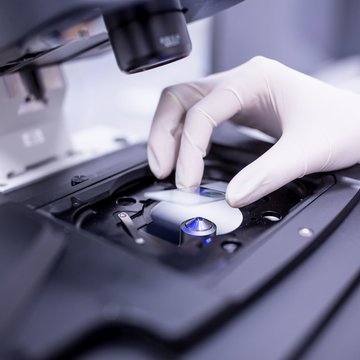
Czech bio-imaging facilities have joined Euro-BioImaging ERIC
The first Euro-BioImaging European Research Infrastructure Consortium (ERIC) was founded on 29 October 2019 and the first meeting of the consortium took place in Helsinki on 12 December. Euro-BioImaging ERIC provides the most up-to-date imaging services in biological, pre-clinical and clinical research.
Euro-BioImaging ERIC (EuBI) offers researchers open access to bio-imaging equipment, methodologies, education opportunities in the field and data administration via a consortium of internationally renowned facilities, referred to as nodes. These nodes are found in 15 countries of the EuBI founding members. The registered office of EuBI is located in Turku, Finland, and the European Molecular Biology Laboratory (EMBL) based in Heidelberg, Germany coordinates access to bio-imaging, while access to medical imaging is coordinated from Italy.
The Czech Republic is one of the founding members of EuBI and is represented by two nodes in the consortium, one in Prague and one in Brno. EuBI nodes were selected and evaluated by experts from Harvard University, Stanford University and other internationally recognized institutions. The fact that both nodes were chosen by these experts shows a strong research culture and community in the Czech Republic.
The Prague node for advanced optical electron microscopy includes the imaging facility at the Institute of Molecular Genetics of the Academy of Sciences of the Czech Republic, the Faculty of Science of Charles University at BIOCEV, the Institute of Physiology of the Academy of Sciences of the Czech Republic, and the Institute of Experimental Botany of the Academy of Sciences of the Czech Republic. The node’s activities associated with EuBI membership are coordinated by the Microscopy Centre at the Institute of Molecular Genetics, while CEITEC (the Central European Institute of Technology) is in charge of coordinating the Brno node.


The facilities joined under the Prague node offer training and access to a wide selection of top-class devices and microscopy techniques, consultation services, sample preparation, data analyses, tools for image processing and result interpretation.
“After approximately ten years of great collaboration between candidate nodes of the EuBI consortium and ministries throughout the various countries, the Czech Republic has joined EuBI, which has become a fully functional research infrastructure with ERIC status. We are pleased to be able to provide our premium services and training to many new international users,” says Pavel Hozák, the head of the Microscopy Centre at the Institute of Molecular Genetics and the Czech Republic’s representative in EuBI for bio-imaging.
"Our membership in EuBI has a double impact on scientist in Czech Republic. They can perform their complex microscopic experiments in selected European facilities, which offer the most suitable equipment and expertise for their particular research tasks. And they also know that thanks to our participation at EuBI local Czech facilities offer and will keep offering the best quality imaging services, on which they can count on while designing their research plans and writing grant proposals," explains Aleš Benda, the managing scientist of Imaging Methods Core Facility at BIOCEV.


Researchers and experts, regardless of their affiliation or region of operation, can use the European-wide open access services. EuBI will help increase the quality and productivity of research and will have a positive impact on the industrial sphere throughout Europe. All services offered by Euro-BioImaging can be found on the infrastructure’s website. Information regarding Czech participation in EuBI and the possibility of gaining open access to imaging methods in the Czech Republic is available on the website of the national infrastructure, Czech-BioImaging, at www.czech-bioimaging.cz












